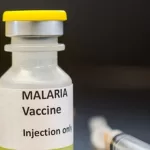Stockholm, Sweden – A new study published in JAMA Pediatrics has found that children who successfully respond to treatment for obesity experience significantly lower risks of serious health issues in young adulthood.
Key Findings:
- Reduced Morbidity and Mortality: Children who achieved obesity remission or a “good” treatment response had substantially lower risks of:
- Type 2 diabetes
- Dyslipidemia (abnormal blood fat levels)
- Hypertension
- Mortality
- Bariatric Surgery: Good treatment response was also linked to a lower likelihood of requiring weight-loss surgery in adulthood.
- No Impact on Depression/Anxiety: The study did not find a significant association between treatment response and depression or anxiety in young adulthood.
Study Details:
- Data Source: The study analyzed data from the Swedish Childhood Obesity Treatment Register (BORIS), which includes information on over 6,700 children and adolescents with obesity.
- Long-Term Follow-up: Researchers tracked participants into young adulthood (ages 18-30) to assess long-term health outcomes.
- Treatment Response Categories: Participants were categorized based on their treatment response: poor, intermediate, good, or obesity remission.
Expert Commentary:
- Significant Implications: Experts emphasized the study’s importance in demonstrating the long-term benefits of effective pediatric obesity treatment.
- Early Intervention: The findings suggest that early intervention may be crucial for achieving better long-term outcomes.
- Limitations: The study did not provide details on specific treatment types or intensities, making direct comparisons with current treatment guidelines challenging.
In Conclusion:
This research provides strong evidence that successful treatment of childhood obesity can significantly reduce the risk of serious health problems in adulthood. Early intervention and effective treatment strategies are crucial for improving the long-term health of children with obesity.
Disclaimer: This news article is for informational purposes only and should not be considered medical advice.
Note: This article is based on the provided text and may not include all the details or nuances of the original study and accompanying commentary.
Disclaimer: This information is for general knowledge and informational purposes only and does not constitute medical advice. Consult a qualified healthcare professional for diagnosis and treatment of any medical conditions.











